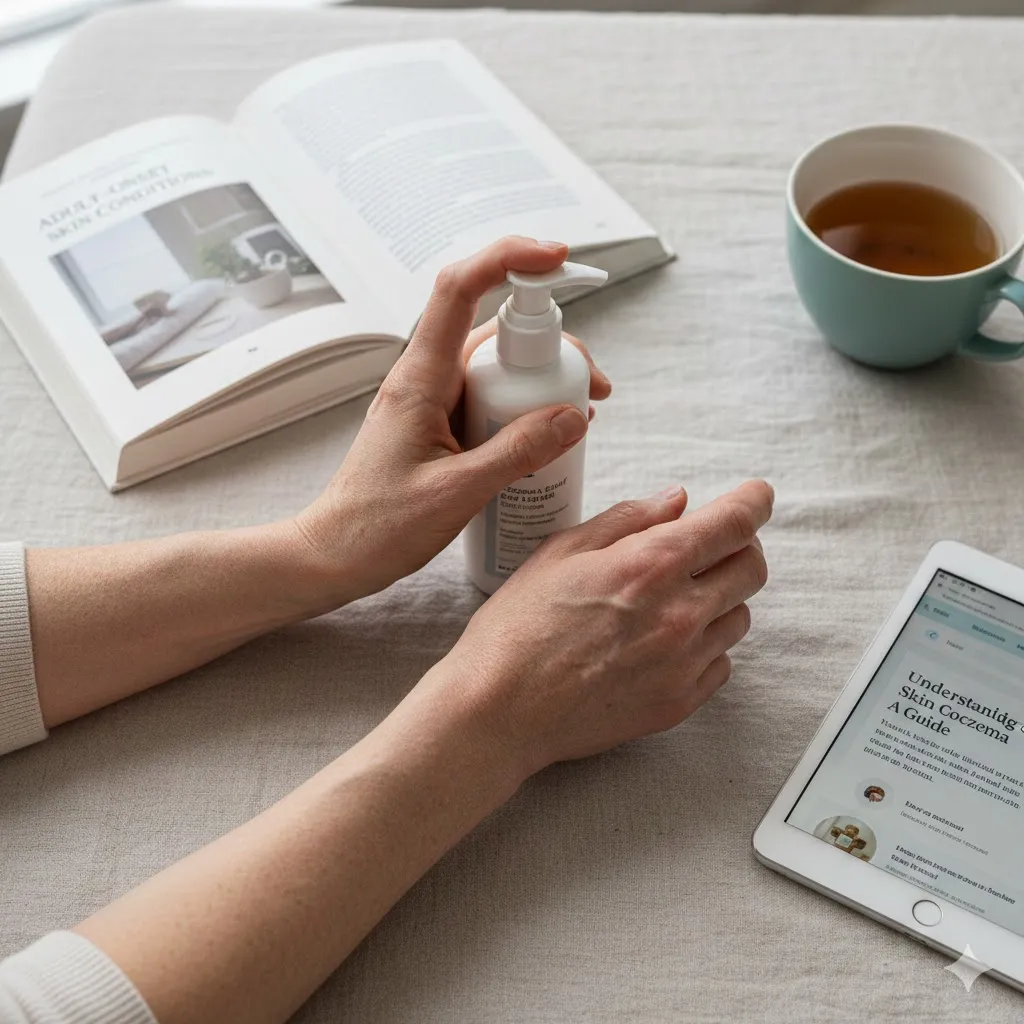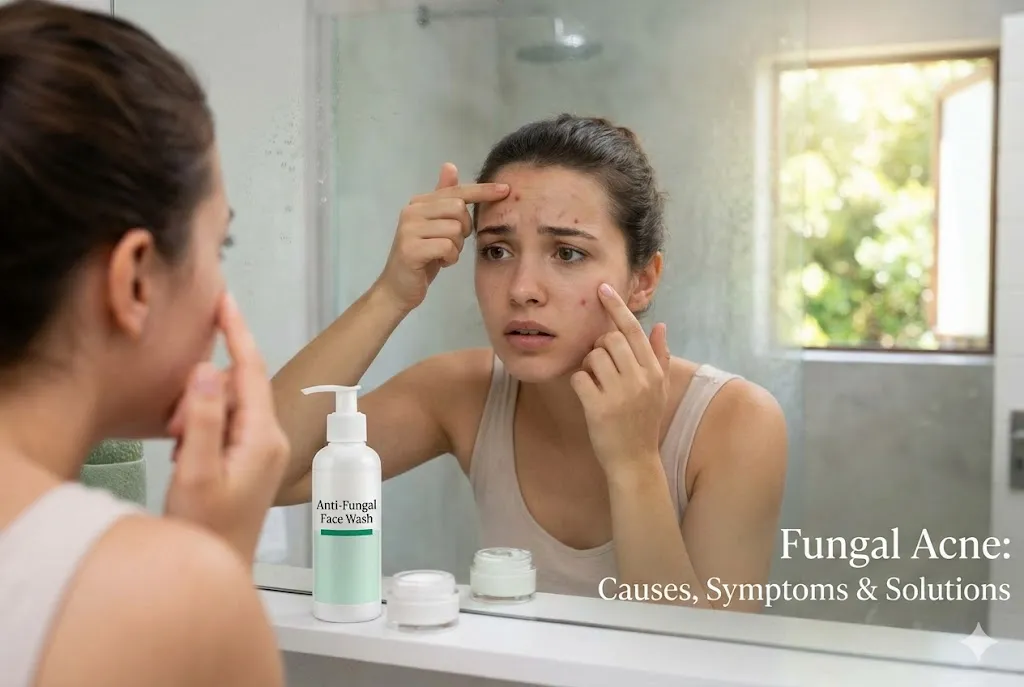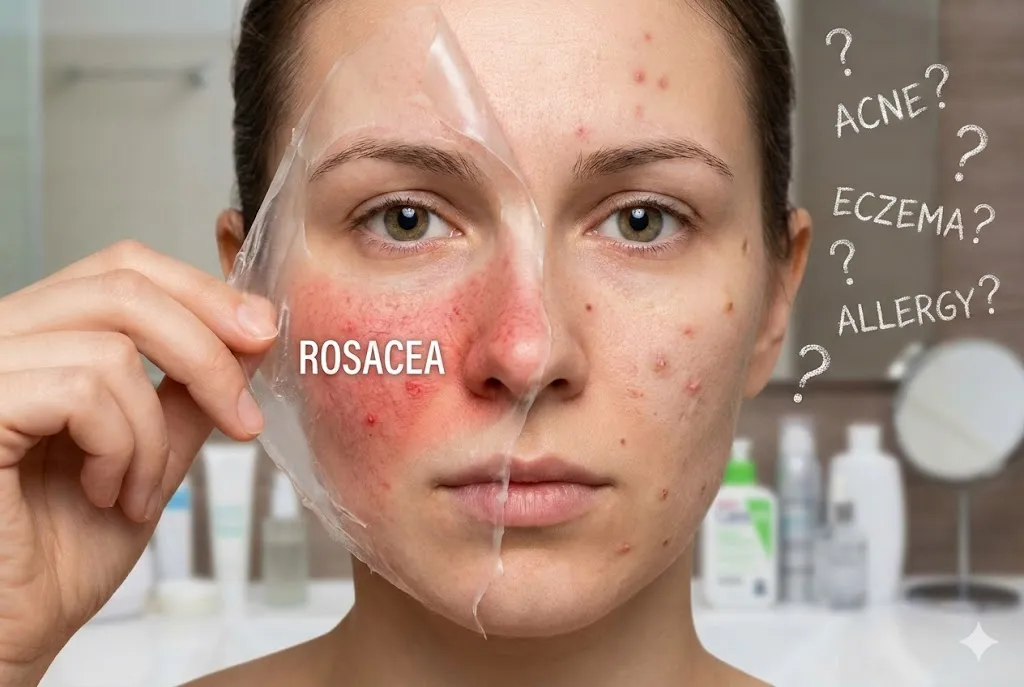Have you spotted a rough, painful bump on the bottom of your foot—or someone else’s? It could be a plantar wart, caused by the human papillomavirus (HPV). This brings up a common concern:
Are plantar warts contagious? Let's explore the blog and know how they can spread, and also what can help avoid them!
Are Plantar Warts Contagious?
Yes, plantar warts are indeed contagious. They’re caused by HPV, a virus that can spread through direct skin contact or indirectly via contaminated surfaces.
How They Spread:
-
Direct contact: Touching someone's wart
-
Indirect contact: Walking barefoot in public areas like swimming pools, locker rooms, and gyms, which are contaminated with a virus.
-
Sharing personal items: Towels, socks, or shoes with an infected person
Not every person exposed to HPV develops warts; the immune system plays a major role.
How Contagious Are Plantar Warts (How Easily Do They Spread?)
While they aren’t as contagious as the flu, being contagious in nature, they can easily spread, particularly in warm and moist environments, making places like locker rooms and pools risky.
You’re more likely to get plantar warts if:
- You have small cuts or cracks on your feet
-
You walk barefoot in public places
-
You share footwear and personal hygiene items such as a towel.
-
You have a weak immune system.
Moreover, if you pick or scratch the warts, they can spread to other body parts.
How Long Do Plantar Warts Remain Contagious?
Plantar warts can remain contagious as long as they’re active, even if they’re small or painless.
Here’s how long plantar warts might stay contagious or transmissible:
| Type of Wart | Contagious Period |
|---|---|
| Single wart (untreated) | 6–24 months |
| Cluster of warts | Up to 4 years |
| After treatment | 1–4 weeks while the skin heals |
The quicker you treat them, the sooner you stop the spread.
In general, untreated plantar warts can spread the whole time, while after the treatment, the virus may remain contagious for 1-4 weeks until the skin heals properly. The best advice is to complete the treatment to fully treat the warts and protect the skin while it is recovering.
How to Prevent Plantar Warts?
The best advice to deal with the contagious nature of plantar warts is to avoid catching them. Consider these measures to prevent them:
-
Always wear flip-flops or water shoes in public areas like swimming pools or public showers.
-
Keep the feet clean using soap and warm water, and dry them
-
Change socks daily, especially if your feet sweat a lot
-
Never share your footwear (shoes & socks) and towels with others.
-
Cover the warts with a bandage to prevent them from spreading.
- Keep your feet moisturized and free from cracks by applying body lotion.
-
Wash your hands thoroughly after touching warts.
-
Get an HPV vaccination, especially if you're prone to warts
Can Plantar Warts Spread to the Hands?
Yes. Warts can spread to the hands or other body parts, especially if you touch them with open cuts or hangnails.
To prevent the warts from spreading to the hands:
-
Do not touch or pick any warts.
-
Wash your hands properly after touching your feet every time
-
Use separate nail clippers for feet and hands
Related: Warts on Hands: Causes, Symptoms and Treatments
Treatment Options for Plantar Warts
Most plantar warts go away on their own, but it can take up to 2 years. So, getting medical treatment is crucial to prevent them from spreading. The treatment options include:
Over-the-counter (OTC) Treatments:
Salicylic Acid:
-
Involves applying a liquid, gel, or patch that contains salicylic acid to the plantar warts, which helps dissolve them. Its cure rate is around 50-70%.
Freezing Sprays:
-
Propane and dimethyl ether are the OTC freezing sprays that can freeze and remove warts as self-treatment at home.
Professional Medical Treatments:
-
Cryotherapy: Involves using liquid nitrogen to freeze the warts, which causes them to blister and fall off eventually.
-
Laser Treatment: Uses laser light to heat and destroy the small blood vessels that feed the wart, which results in the death of the wart.
-
Immunotherapy: Involves using a topical chemical, like diphencyprone (DCP), to stimulate the immune system to identify and kill the HPV responsible for causing warts.
-
Cantharidin: The topical medicine applied to warts to cause the formation of blisters, which helps cut off the blood supply to warts. This leads to the death of warts.
-
Electrocautery: Uses an electric current to burn off the warts from your feet.
-
Surgery: Involves using a scalpel (sharp surgical knife) to cut the warts under anesthesia and a curette (a small scoop) to pull the warts out.
Important considerations:
-
If using OTC treatments, follow the instructions given on the product label carefully.
-
Be patient, as multiple sessions may be required to completely remove plantar warts.
-
Prevent recurrence by practicing good foot hygiene and avoiding walking barefoot in public areas.
Home Remedies for Plantar Warts (Use With Caution)
You can also try home remedies, but they can take a long time to show results. If they are ineffective and your warts bleed, spread, or cause discomfort, see a doctor immediately.
The simple home remedies for warts include:
1. Duct Tape
-
Helps get rid of layers of warts by leaving the tape on the warts for a few days.
-
Soak the area and then scrape out the dead layers using an exfoliating tool.
2. Salicylic Acid Products
-
Not as potent as prescription ones, but they work similar way by dissolving the warts using the salicylic acid-containing products.
-
The products are gels, plasters, and rubs applied to warts several times.
3. Apple Cider Vinegar (ACV)
-
The acetic acid in ACV helps destroy the virus upon contact, and vinegar aids in burning and slowly eliminating the infected skin, causing the warts to fall off.
-
Use it two times daily for some weeks, and then rub out the warts.
4. Tea Tree Oil
-
Research shows that the antibacterial and antiviral properties of tea tree oil can help remove warts.
-
Dilute the oil with any carrier oils (e.g., coconut or castor oil), apply it to the warts, cover them with a bandage, and repeat every day.
5. Aloe Vera
-
The healing and soothing properties can help reduce the size of warts and eliminate them eventually.
-
In addition, its antibacterial and antiviral effects can help fight off the HPV that causes warts.
-
Just apply a fresh layer of the gel to warts, cover with a bandage, and allow it to dry. Repeat it daily.
6. Epsom Salt Soaks
-
By softening the warts, Epsom salt soaks can help remove them. They can also enhance the effectiveness of other treatments by making the skin soft.
-
Add 1 to 2 tablespoons of Epsom salts to warm water, soak the affected area for around 15-20 minutes, and then remove warts using a pumice stone.
Who’s Most at Risk of Getting Plantar Warts?
Though anyone can develop plantar warts, the following groups of people need to be careful, as they are more prone to catching them:
-
Children or teenagers
-
People with weakened immune systems (e.g., autoimmune diseases)
-
Older adults (over 65 years of age)
-
People who had previously suffered from warts
-
White individuals (due to skin type differences)
Final Thoughts: Protect Yourself & Others
So, are plantar warts contagious? Yes, they are contagious and can spread from one person to another easily if you are not careful, through touching the warts, sharing personal items, and using HPV-affected public areas. But the good news is they're preventable and treatable.
Take good care of your feet, don’t walk barefoot in public places, and never share personal items like shoes or towels. And if a wart shows up, treat it early to avoid spreading it to yourself or others. When in doubt, always consult a doctor—especially if the wart is painful, bleeds, or multiplies.
Frequently Asked Questions
When are plantar warts no longer contagious?
When plantar warts are completely removed, they are nor contagious. However, the duration can vary based on factors like the size and location of warts, the immune system of individual, and the provided treatment.
Can plantar warts spread through bed sheets?
Yes, they can spread through bed sheets, especially if they come in direct contact with warts.
Is it fine to leave a plantar wart untreated?
No, leaving the plantar warts untreated can lead to chronic pain and discomfort, spreading, and changes in posture or walking manner. Moreover, they may take a longer time to resolve, and may even occur again.
Is a plantar wart a severe infection?
No, a plantar wart is not generally a severe infection and goes away on its own in most cases. However, if they occur in the weight-supporting areas of the body, they can cause pain and discomfort.
Can plantar warts be cancerous?
No, these warts are non-cancerous, as they are caused by a virus called human papillomavirus. However, in very rare situations, they can turn into verrucous carcinoma, a skin cancer which usually occurs due to a weak immune system, and chronic warts.
Reviewed by







